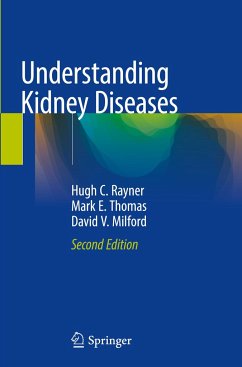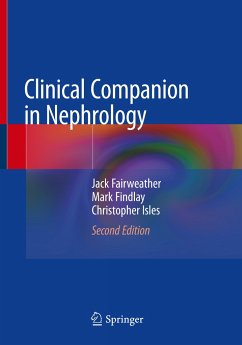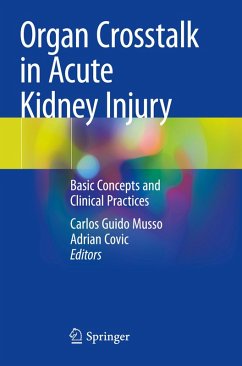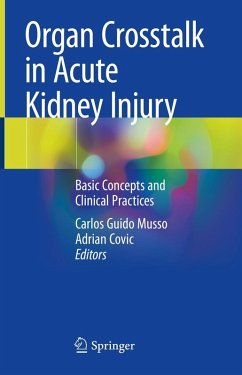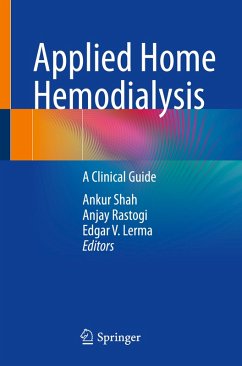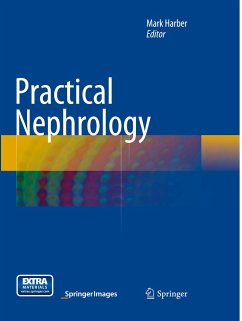
Understanding Kidney Diseases
Versandkostenfrei!
Versandfertig in 1-2 Wochen
125,99 €
inkl. MwSt.
Weitere Ausgaben:

PAYBACK Punkte
63 °P sammeln!
Understanding Kidney Diseases makes accessible a medical specialty that is commonly regarded by students as difficult. The target audience is undergraduate and non-specialist postgraduate students.The book is unique in combining the reference material normally found in a nephrology textbook with the everyday clinical applicability of a medical handbook. The chapters are structured on the approach that a clinician should take when assessing someone with a possible kidney problem. The factual content is brought to life by over 60 case studies and is illustrated by a high density of figures, many...
Understanding Kidney Diseases makes accessible a medical specialty that is commonly regarded by students as difficult. The target audience is undergraduate and non-specialist postgraduate students.
The book is unique in combining the reference material normally found in a nephrology textbook with the everyday clinical applicability of a medical handbook. The chapters are structured on the approach that a clinician should take when assessing someone with a possible kidney problem. The factual content is brought to life by over 60 case studies and is illustrated by a high density of figures, many displaying information in a graphical form that avoids off-putting data and text.
It is an authored book, written in a consistent style that is deliberately clear, concise and easy to follow. Nonetheless, it is referenced in as much detail as would be expected in a conventional textbook. It explains principles and concepts that help students understand and interpret clinical problems. No other textbook of nephrology combines these features.
The book emphasises a patient-centred approach to practice. Students' knowledge can be put it into practice by answering a bank of questions that patients frequently ask, and tested against traditional multiple-choice questions.
In summary, Understanding Kidney Diseases gives students confidence in helping someone with a kidney problem. Praised by leading nephrologists, it is the book the authors wish they could have read when they were students.
The book is unique in combining the reference material normally found in a nephrology textbook with the everyday clinical applicability of a medical handbook. The chapters are structured on the approach that a clinician should take when assessing someone with a possible kidney problem. The factual content is brought to life by over 60 case studies and is illustrated by a high density of figures, many displaying information in a graphical form that avoids off-putting data and text.
It is an authored book, written in a consistent style that is deliberately clear, concise and easy to follow. Nonetheless, it is referenced in as much detail as would be expected in a conventional textbook. It explains principles and concepts that help students understand and interpret clinical problems. No other textbook of nephrology combines these features.
The book emphasises a patient-centred approach to practice. Students' knowledge can be put it into practice by answering a bank of questions that patients frequently ask, and tested against traditional multiple-choice questions.
In summary, Understanding Kidney Diseases gives students confidence in helping someone with a kidney problem. Praised by leading nephrologists, it is the book the authors wish they could have read when they were students.
Bei diesem Produkt handelt es sich um ein Bundle, bestehend aus einem Buch und einem digitalen Mehrwert.
Deshalb wird dieses Produkt auf der Rechnung mit 19% MwSt ausgewiesen.



